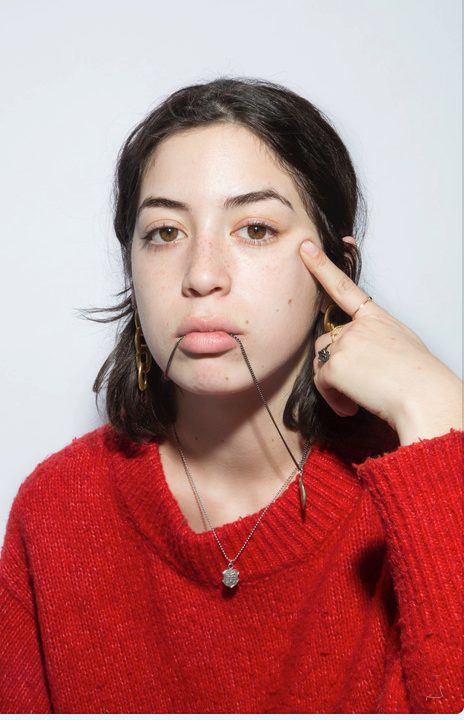Life in the Gray Area: Navigating Racial Injustice as a Mixed-Race Person
Mixed-race people straddle two worlds. But they can use their privilege to stand up for others.
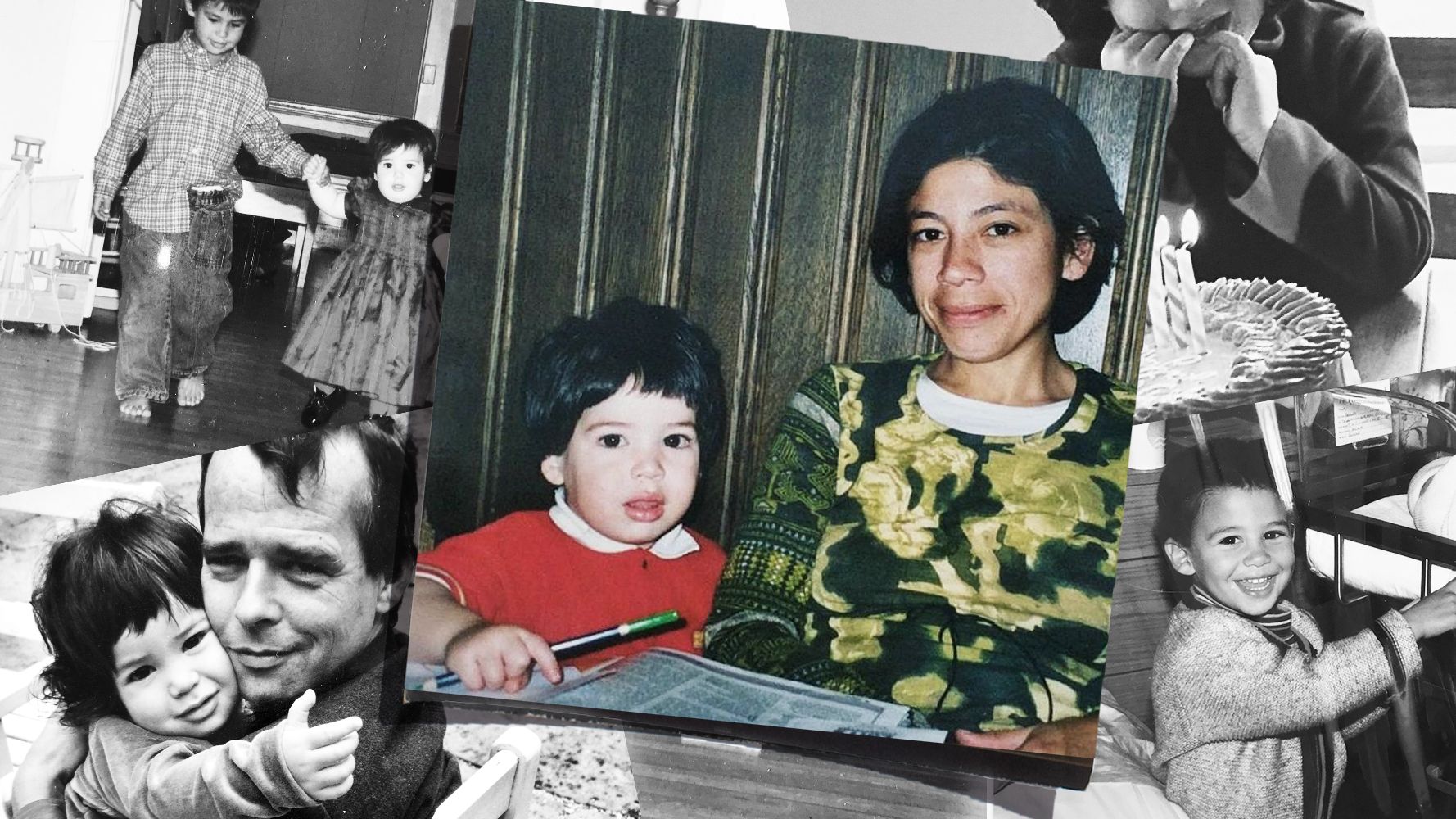
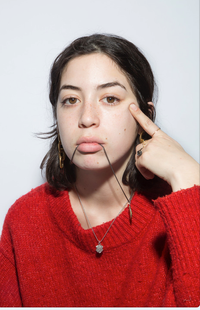
My mom always talks about the first time she realized that children saw race. She was chaperoning my kindergarten field trip and, as we walked, my (white, blonde) friend asked me, “Why is your mom brown but you have light skin?” I didn't answer her. Instead, I took my mom’s hand and kissed it. Before that moment, I don’t know if I realized that I don’t look like my mother or my brother, who both have brown skin. Like many multiracial people, questions about where I belong, or what I am, came predominantly from outside the family.
When George Floyd’s murder and the protests that followed brought police brutality to the nation's attention again, I wanted to speak up but didn’t know where I fit into the conversation. Within my family and circle of friends, race is frequently a topic of discussion. Being half-Latina, I feel deeply impacted by acts of racism. Latinx people have their own relevant and unique struggles in the United States. But the conversation happening around the world today isn't about people of color—no matter how many celebrities use this evasive phrase. It is about Black Americans. Full stop. As a white-passing half-Latina, I can't speak to the Black experience in America. And yet, I felt unrelenting empathy and a passion to become involved. Still, something held me back. A few weeks ago, a girl I know posted on Instagram something to this effect: “To my white followers, your silence equals violence.” I kept thinking about it. Did she mean me? Does she know that I’m not white? Should I make it clear that I’m not white?
On June 1st, another friend Miranda Roehrick, who is half-Black, wrote this on her Instagram: “My apparent racial ambiguity (not my words) has confused people—made them uncomfortable even… I felt like a black and white puzzle that people just wanted to find the color in. And that gave me a certain level of guilt-covered camouflage in society, making me safe and also unseen.” This statement put into words a paradox that I have struggled with since that first walk, kissing my mom's hand.
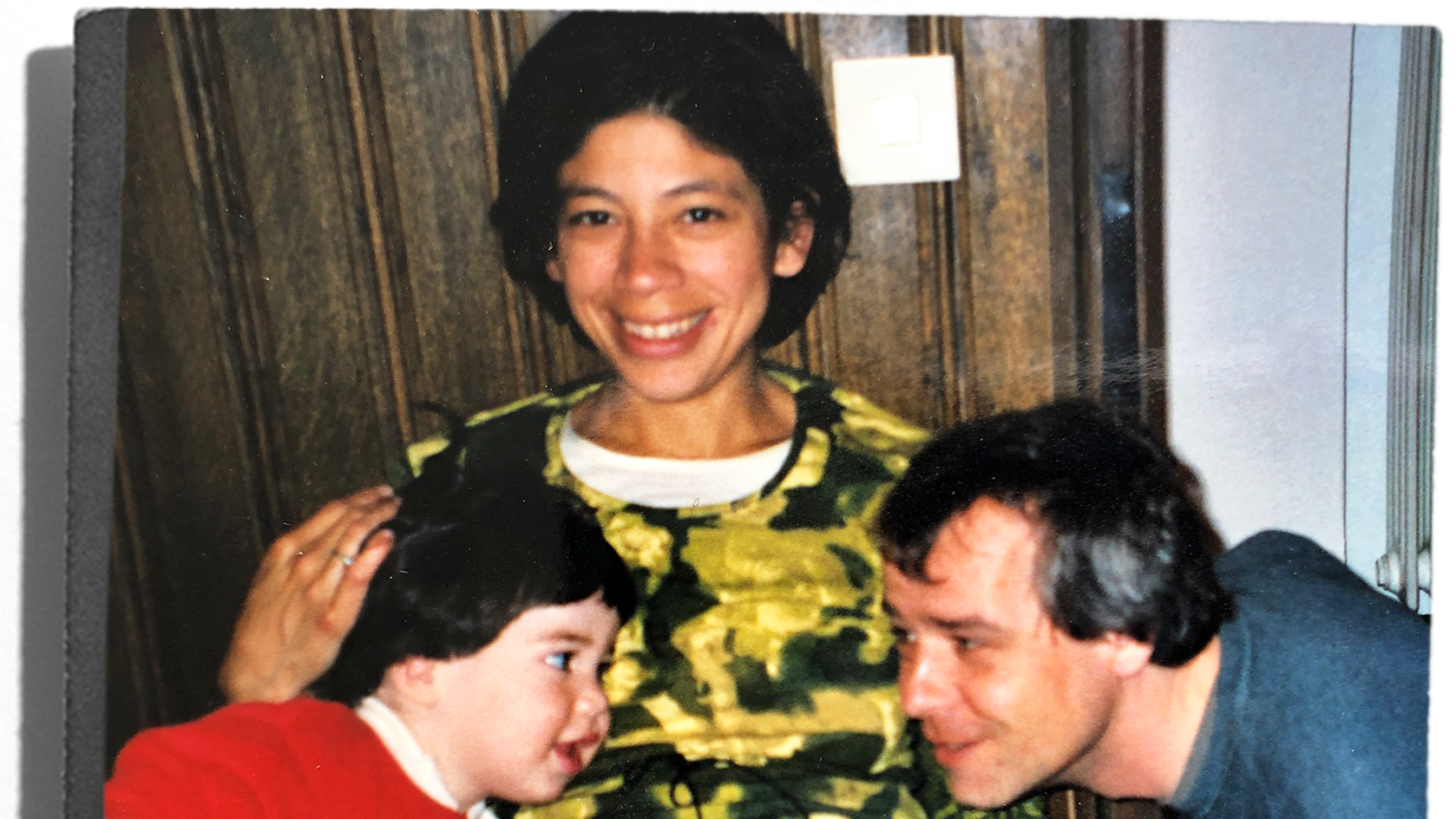
Me with my mom, Cecilia, and my dad, Gregor.
Many multiracial people have the ability to go through life without being considered a person of color—a privilege that gives them safety in a world that is continuously unsafe for people of color. But privilege and being multiracial do not always go hand-in-hand. My brother and I are the exact same mix—Nicaraguan and German—but he has been the target of racism and I have not. When my brother was 16, a police officer threatened to shoot him and his Black friend; when I was 16, a police officer let me off without a ticket because I started to cry when he pulled me over. Factors like location and physical presentation greatly alter the experiences of mixed-race people.
Privilege and being multiracial do not always go hand-in-hand.
When it came to participating in a conversation about racial injustice, I simultaneously felt under-qualified to speak, and bursting with things I wanted to say. While I cannot claim to speak for all multiracial people, I believe that belonging in two worlds gives me more leverage to have difficult conversations about race. Like it or not, white people feel comfortable asking me questions about race—ones that they would not feel comfortable asking someone who's not white-passing. Questions like: "Why is it racist if I…?"; "Can you explain why…?"; "Do you think it's okay if I…?" Though I don't always feel like I'm qualified to answer, I don't mind having those conversations.
But, it can be exhausting for many. Kenia Cobb, 25, who lives and works in the Bay Area, identifies as a biracial person of color. She believes that her multiracial status gives her the often burdensome task of educating her friends: “I think about how many white people I have in my circle and how important it is for me to speak up because they listen to me…even though really they should listen to any [person of] color.” This circle of influence often extends to white family members, as publicist Christie Corso, 24, who is half-Filipino, informs me. She has taken strides to educate her white father on the importance of racial equality and justice with films and documentaries that highlight the experiences of Black Americans. Mary Katherine Withers, a 24-year-old publicist who is also half-Filipino, believes that her privilege comes with a responsibility to “speak up against racism and to call people out when they’re exhibiting unacceptable behaviors."
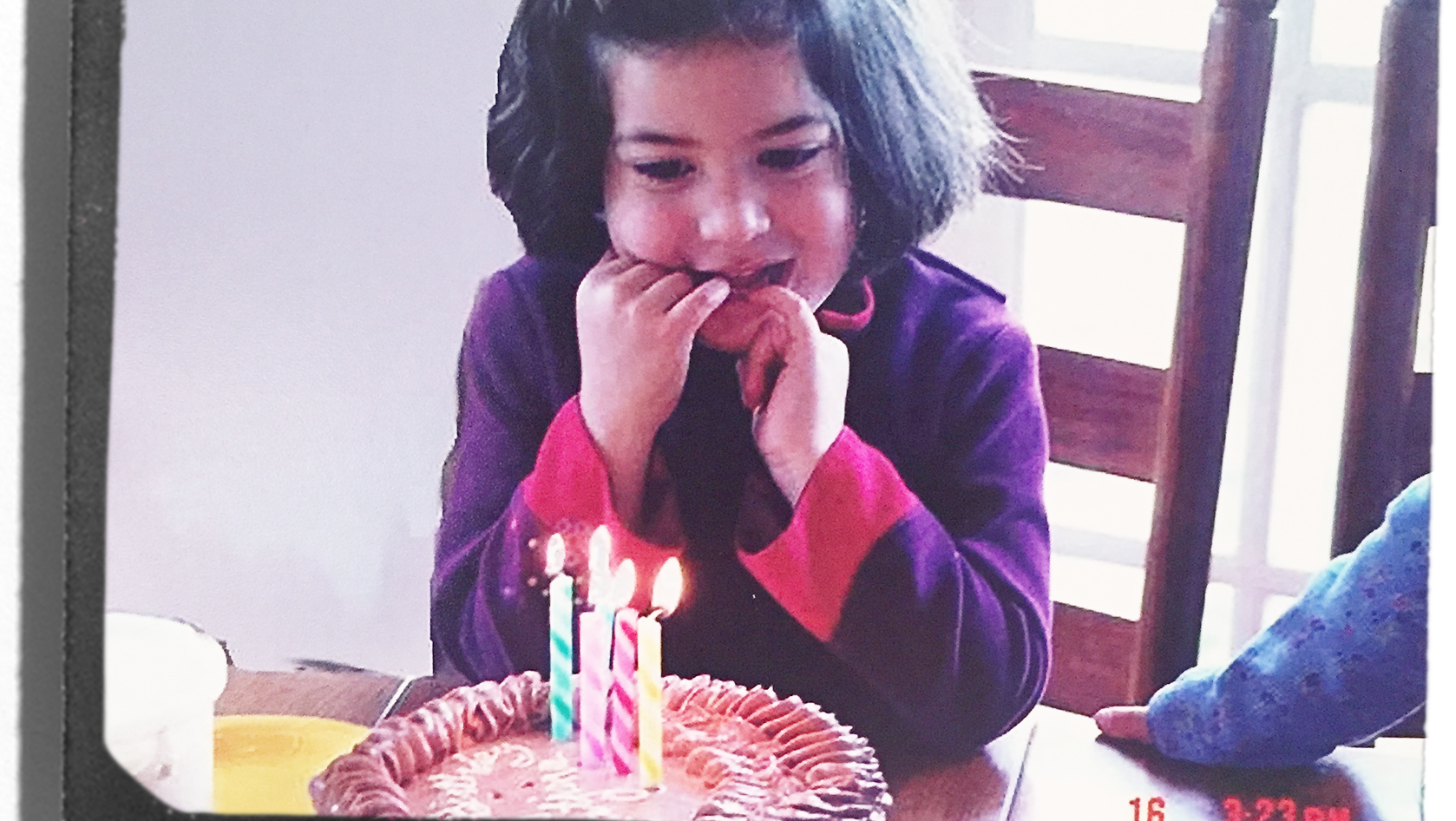
My 4th birthday.
Finding your place in the fight for racial injustice is difficult. I believe that the role of multiracial people has been under-explored in this country, in part because many multiracial people have been, at times, made to feel white-washed or like they needed to assimilate. I was made to feel like there was a distance between me and my relatives because my white peers couldn't fathom how I fit in with them and didn't want to hear me talk about race. I look white, so what would I know about racism, or Latin America, or issues surrounding immigration? The implication was: You shouldn't participate in the discussion. But I actually know a lot about these issues through my lived experience. As complicated as our racial identities may seem, sitting out the discussion is just not an option. Nate Cohen, a 25-year-old photographer who is biracial and identifies as Black told me, "When it comes to fighting racial injustice, I don't think that being biracial changes anything… I have no delusions about where I fit into what's happening in the world right now… It's everyone's responsibility to do as much as they can to tear down these institutions, independent of their race."
Get exclusive access to fashion and beauty trends, hot-off-the-press celebrity news, and more.
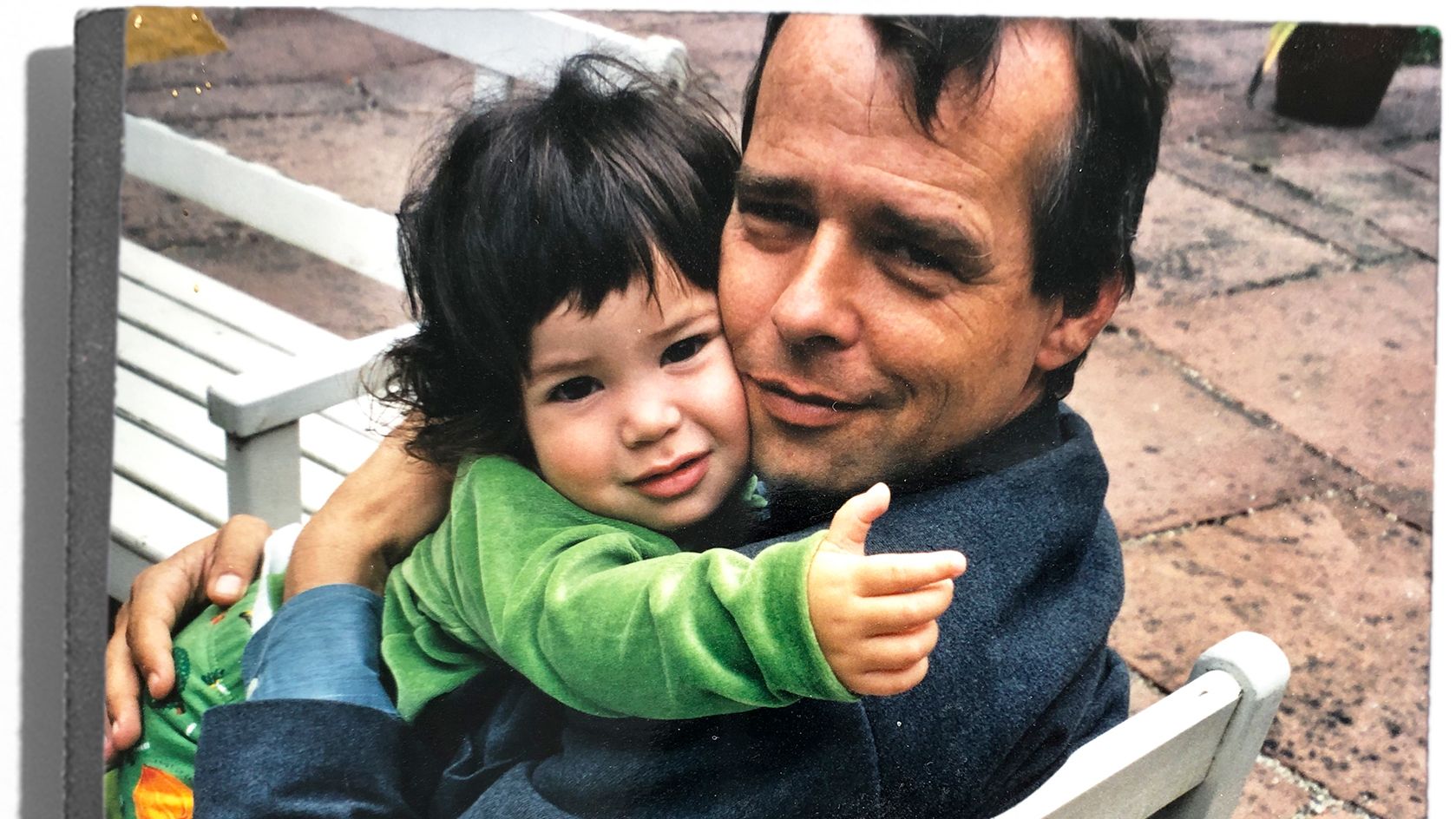
Me with my dad, Gregor
When I was young, it was difficult for me to claim the privilege of my whiteness without feeling like I was losing a part of my Latin identity. I spoke Spanish before I spoke English, I was raised with my Nicaraguan relatives all around me, and for some reason, it felt like I was distancing myself from my family history when I acknowledged my privilege. I have witnessed blatant racism directed at my Nicaraguan and dark-skinned relatives, but have rarely experienced it myself. This created a sense of guilt that makes me feel unworthy of participating in the greater conversation.
On this topic, Roehrick had one thing to say: “We are still people of color, and our identity should be something that we own… We are our history and heritage, and we are our mother’s daughters. We are part of the conversation."
For more stories like this, including celebrity news, beauty and fashion advice, savvy political commentary, and fascinating features, sign up for the Marie Claire newsletter.
RELATED STORY

Tatjana Freund is a Beauty Commerce Writer, covering makeup, skincare, and haircare products and trends. She's a fan of vodka tonics and creepy Wikipedia pages.
